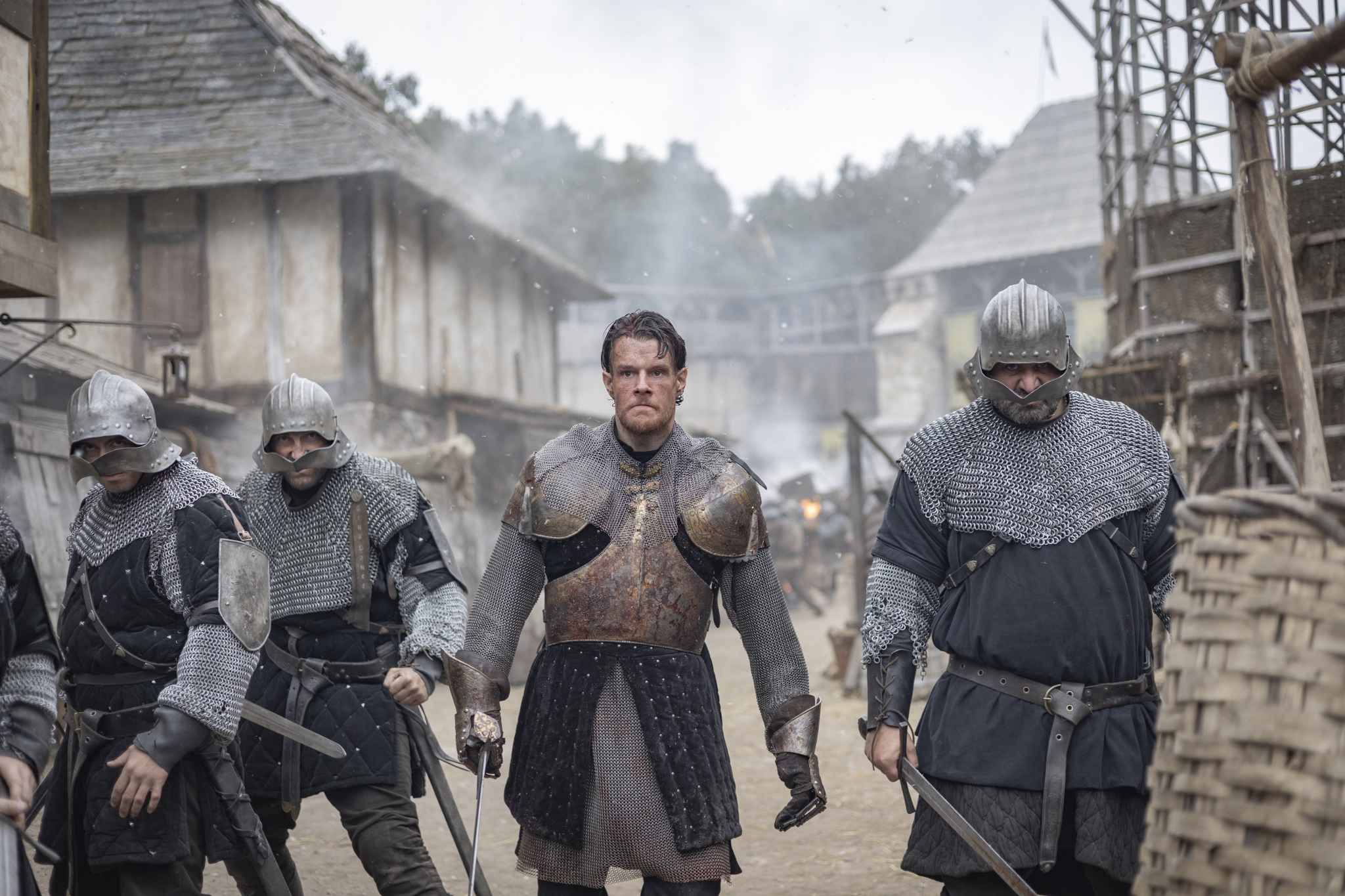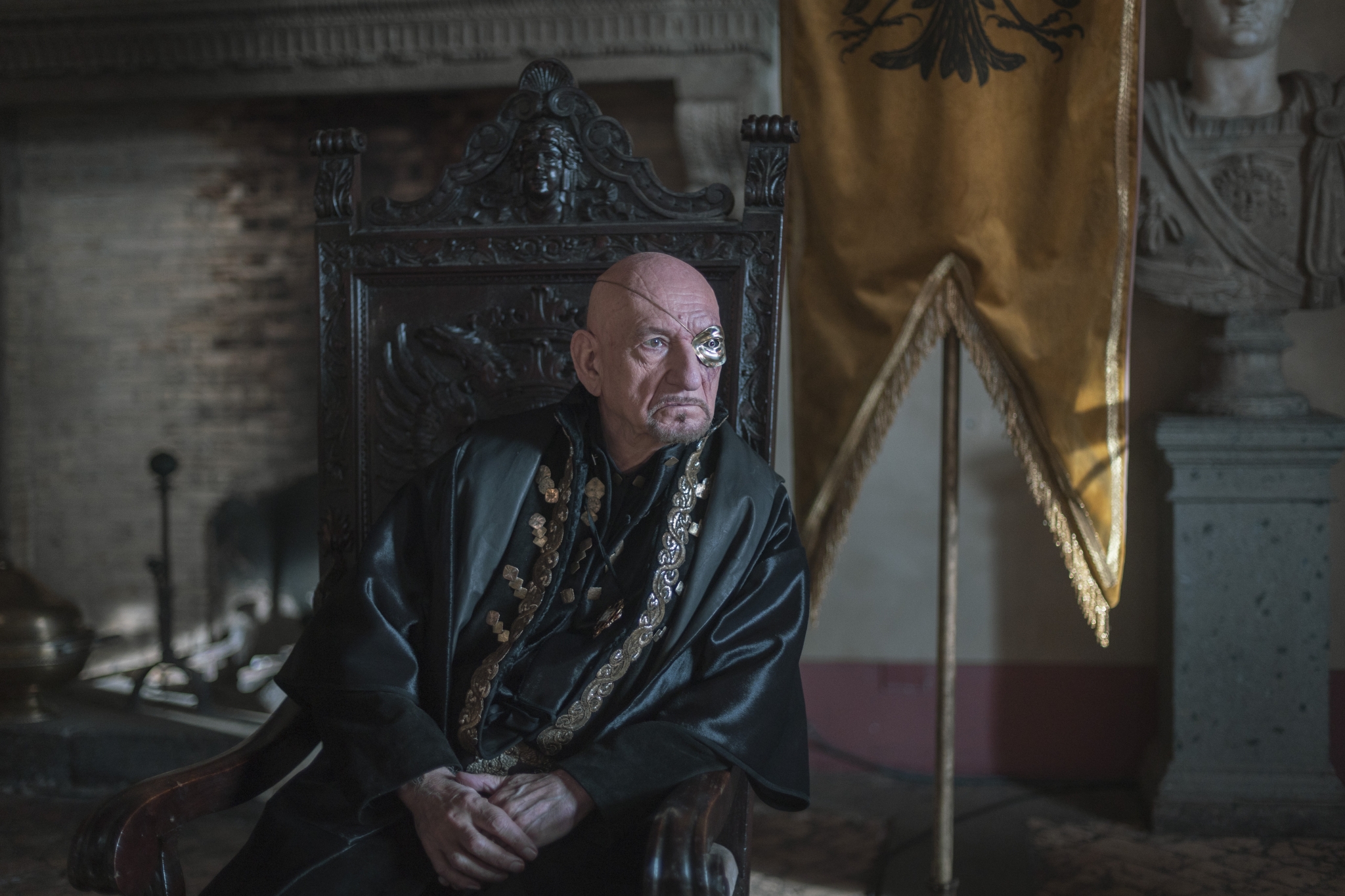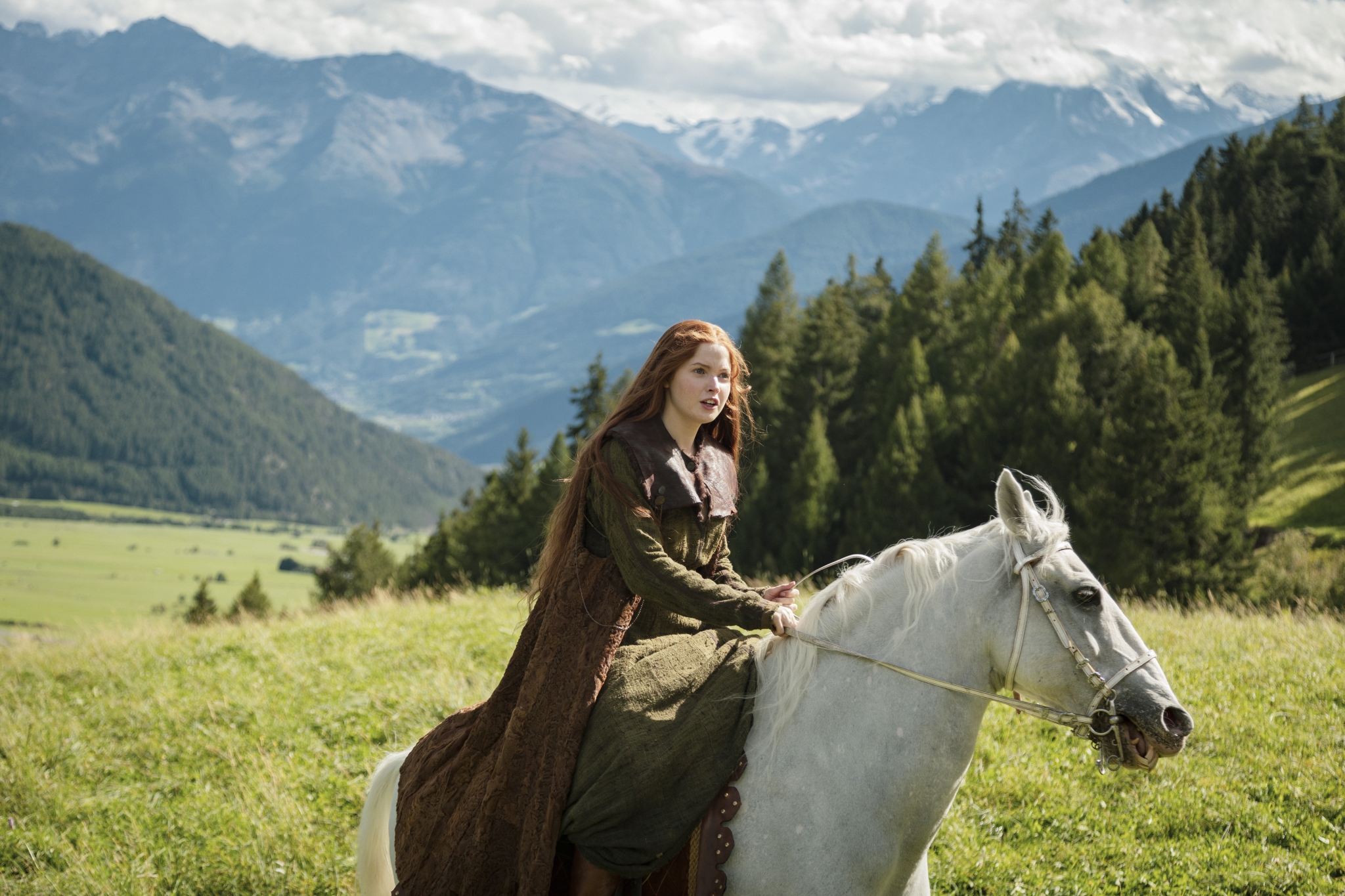

The director sits down with Deputy Editor Chris Cotonou to discuss the makings of a great anti-hero, capturing the Swiss Alps on film, and how he brought his historical epic to the big screen.
Where did all the good historical epics go? Not more than 20 years ago, cinemas were full of grand, sweeping stories set in the past, pitting heroes of poetic stature against scheming tyrants. Blood, swords, rousing speeches, adventure—that kind of thing. So I was pleased to find myself watching filmmaker Nick Hamm’s latest, a retelling of the story of Swiss folk hero William Tell—inspired by the German playwright Frederick Schiller’s 1804 masterpiece—which had all of that and some neat modern touches.
Hamm, a one-time resident director of the Shakespeare Theatre Company (as well as a film and TV veteran), brings plenty of respect to the source material, but introduces the story for today’s audiences. Along with a dashingly heroic Claes Bang in the titular role and Sir Ben Kingsley as the dastardly King Albert, in Hamm’s version, Tell has a wife from a past life in the East, played by Iranian actress Golshifteh Farahani. There are also better roles for women (some who get in on the action) and Ellie Bamber, in particular, impresses. And Hamm’s William Tell has a resonant political subtext crafted around our modern world.
So, it’s a different take from his enjoyable Driven or intriguing Brit thriller The Journey. But it’s refreshing to see Hamm have so much fun crafting a swashbuckling period superhero for contemporary audiences. And William Tell 2 (not its confirmed name) was teased at the end of the film, as Tell takes off with more work to be done against the tyrannical empire. There’s no time to waste. “This is it,” Hamm tells me, excitedly, as he points to a jumble of paper stacks on his table. “This is Tell 2!”
We can expect the tale to be continuing sooner than we’d have imagined—and perhaps a new, exciting franchise to be born. But before that, Hamm joins A Rabbit’s Foot to discuss bringing his historical epic to the big screen.

A still from William Tell (dir. Nick Hamm)
Chris Cotonou: What is your history with William Tell, the play?
Nick Hamm: I’ve known about it for 30 years. I was a theatre director for the Royal Shakespeare Company and I was aware of the classical texts of Frederick Schiller. I knew of the play and of the story of William Tell when I was a child, and the TV version with a fat Gessler and Tell running around like a pseudo Robin Hood. I was interested in the idea that although Schiller is taught like Shakespeare in Germany, no one had taken this massive legend and done it properly, instead of a bad TV show. I felt passionate about the idea of doing our stories without Hollywood, and I started to work on it and write it myself.
CC: How did you translate the language of Schiller onto screen?
NH: I spent months breaking down the play and then I re-imagined the whole thing. I tried to get this balance between Schiller’s high poetry and the vernacular language of daily life. You can discuss political ideas in a pithy, powerful way with Schiller’s poetry, but it can be too artsy for a complete picture. So, you need to balance the poetic with the vernacular. You’re dealing with a story set in the 14th century, written by a man in the 19th century, and adapted by us in the 21st century.
CC: What were you trying to say with your version of William Tell?
NH: You know the scene with the apple [where Tell is forced to shoot an apple placed upon his son’s head from a distance]. It’s about the idea of political liberty. It’s the beating heart of what we talk about right now on a daily basis in our culture, both here, in the US and around the world. It’s about how you retain a level of autonomy and freedom when you’re subjected to authoritarianism. This is a debate Schiller confronts. I was fascinated by that. And the apple scene is the absolute distillation of a story about political power: one man forcing another man to assassinate their child in public so the people around will obey him. I had to augment it for cinema. But that scene is resonant now. It’s the equivalent of journalists getting their throats cut in the desert; an act of political violence. Strip away the bullshit with the feathers in the caps, the fat guys with waistcoats, and there is a level of savagery that is pertinent to right now. That’s what I wanted to do.

A still from William Tell (dir. Nick Hamm)
CC: It’s also incredibly entertaining. How do you get that balance?
NH: If you make a boring police drama, no one is going to care. You have to hide the message and educate within the entertainment. I was fascinated by this broad scale epic that I could take on, that I could use the tropes of the genre. There’s a message, but there’s also princesses and nasty guys dressed in black, horses trampling people and a rousing speech. You’ve got to have a rousing speech. People want the tropes, and you have to learn to be brilliant at working out what the trope is doing; by sometimes undermining it and making it modern.
CC: Where did you decide to take artistic license with the source material?
NH: I took what was written as a sort of speech and created the drama from that speech. I was determined to keep the old-fashioned language, because what irritates me most is the laziness of contemporary writers in period drama. For fuck’s sake: at least pay attention to the language. But I spent a long time making the screenplay accessible. Balancing the ordinary and the poetic. I mean, look at the play.
CC: The film teases a franchise. Was this something you planned while preparing the screenplay?
NH: From the start, I knew that if I got this world right, with this simple story, there could be an extension. It ends with William Tell as a hero. But this isn’t the American style of ending where he kills Gessler and walks out into a cloud of smoke. We can’t do that for this movie. You need an ending which shows that there’s always a bigger fucking bastard [the Austrian emperor, played by Sir Ben Kingsley]. Just like Putin. So, yes—in the film, the Swiss win the battle, but the Austrians have got thousands of troops and they’re coming. There’s a teasing horror that I enjoy. That’s Tell 2, right there!
CC: Sir Ben Kingsley’s a brilliantly tyrannical villain. His opulent gold eyepiece was especially alluring—perfect uniform for a bad guy.
NH: In real life, that’s what kings wore when they lost an eye. Sir Ben plays a real king who lost his eye in battle. Ben had to get a cast because it pressed on his eye too much, it was too painful. But he decided he quite liked it. He suits it. And name me an actor that can do a whole performance with one eye and still be terrifying?

A still from William Tell (dir. Nick Hamm)
CC: How did he approach the role?
NH: He comes prepared, like the best actors do. I rehearsed a lot with all the actors, but because it was Sir Ben, there weren’t as many occasions with him. So we had to work some of it out on the hoof. But the benefit was that I could write for him in the moment. I kept thinking, while he was working, “he’s really good, let’s give a couple more scenes.” So I’d write them. The scene where he squeezes Gessler’s hand was done a week before it was shot, because I realised the two baddies need to have contact. You hate Gessler because he’s a violent fascist. But you hate him less and feel sorry for him when you meet Ben Kingsley’s character.
CC: On the other hand, Claes Bang is an awesome hero. What made him your William Tell?
NH: The character is anti-war. But he doesn’t say much. He’s old fashioned and lives in the mountains. As an actor, he offers many things, but there’s also an element of danger about him. He also offers a type of uncertainty. You don’t know if he’s going to kiss you, slap you, or fuck you. And those three things paint a great anti-hero.
CC: Can you tell me about how you approached some of the characters for a newer generation? There is diverse casting and female empowerment. You wrote his wife as someone he met while travelling to the East.
NH: The women in the original story are written terribly, and you can’t do that anymore. The women we cast are proper actors and they don’t want to play those roles. I gave Tell a backstory to allow him to organically fall in love with someone from another non-Swiss background. We should all be working like this, but it has to be organic. Not in a hammer blow type of way.
CC: Something I found interesting was the way you filmed it in a realist, almost documentary style way.
NH: The landscape of the Swiss Alps is majestic. It’s part of the poetry of the movie. In a lot of period cinema, they grade it all fucking blue, with diluted colours, just because Ridley Scott did it 20 years ago. But in Medieval times, not everything was blue or grey. In my film, I reflect the same colours we see in the Swiss Alps today. I wanted it to be like The Sound of Music with violence.
CC: How was the reaction when you first showed William Tell in Switzerland? It is their folk hero after all.
NH: It was fascinating because we did the Zurich Film Festival and showed the movie to both Swiss and German audiences. It was fantastic. This is someone who is a part of their culture; on the postage stamps and chocolate. My question was: how has this legend survived? It’s a moral man with a moral centre in a world which does not. And the German journalists took to it because they could see that Schiller had been homaged in a way a German filmmaker might use Shakespeare—a certain abandonment from orthodoxy. But in Switzerland, I was more nervous than any screening. But they loved it. And that’s great, because, for everything William Tell is, it’s their story. Their hero.
William Tell is in UK cinemas on 17th January.





